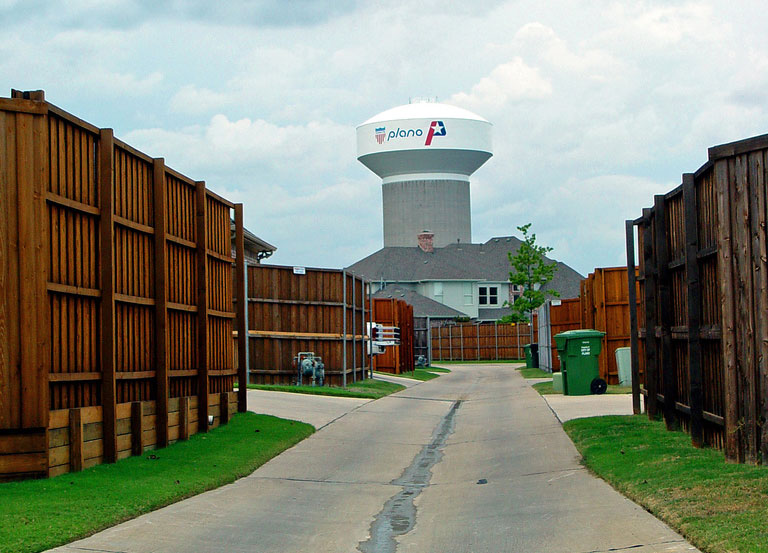Erin Brockovich made her name fighting a utility company responsible for contaminated drinking water in a California town. It was a name good enough to be the title of the 2000 movie starring Julia Roberts, which told the story of the environmental activist’s ultimately successful legal battle with the Pacific Gas and Electric Company.
Now, Brockovich has turned her attention to North Texas. In a couple of Facebook posts, the most recent on Wednesday, she has taken the city of Plano and the North Texas Municipal Water District to task for a chlorine maintenance process that she says could result in “toxic and dangerous” drinking water.
The water district didn’t return my messages, but on Thursday, probably sick of getting calls from reporters about the “Brockovich situation,” it put out out a press release to “assure the public that the processes used to treat and maintain the safety and quality of the district’s drinking meet federal and state standards.”
Typically, the water district uses a mix of chlorine and ammonia, called chloramine, as well as ozone, to treat its water. But every year, the water district, which supplies water to Plano, McKinney, and several other Dallas suburbs, ditches the ammonia for a roughly month-long maintenance period. The water district says that while a chlorine smell may become more pronounced during this time, the water remains safe for all uses. (The current 28-day maintenance period ends on March 26.)
The water district says this temporary use of chlorine, a more potent disinfectant than the chloramine mixture, is necessary while the system is essentially flushed of biofilm, described as a necessary measure to maintain water quality during the summer months. Nitrification, which is a bad thing in this case, becomes more likely in warm weather without this kind of preventative maintenance, according to the water district.
“Water quality and safety is a top priority, and we work closely with officials in Member and Customer Cities, federal and state agencies to fulfill our mission,” Mick Rickman, the water district’s director of operations, says in a press release. “This is a safe and scientifically proven method to ensure that treated water remains safe as it moves throughout the distribution system.”
Brockovich, who has criticized the chlorine maintenance system in other cities, is not convinced. The water district is using “cheap and dirty” tricks to conceal that, when chlorine disinfection is used, it can lead to harmful chemical byproducts called trihalomethanes, Brockovich says. Not only that, she says the use of chlorine is less of a maintenance process, and more of a “remedial action” taken on a water supply whose quality she says is already suspect.
The water district says that its water quality has met all state and federal safety standards.
For what it’s worth, Dallas Water Utilities, which supplies the city of Dallas’ water, does not use the same chlorine maintenance process. This is from the city of Dallas’ webpage on water quality:
The chemicals we use include: chlorine and ammonia (which combines to make chloramine) or ozone to disinfect the water; lime and iron sulfate to remove suspended solids in the water and for corrosion control; activated carbon to control offensive tastes and odors; and fluoride to help prevent tooth decay. We use chloramine instead of chlorine to protect the health and safety of our citizens. Studies have shown that using chlorine by itself can cause a reaction in the water that leaves by-products called trihalomethanes. Some studies indicate that trihalomethanes could be harmful if consumed in large quantities over long periods of time. Dallas water is considered non-corrosive, which means that it is less likely to leach lead from pipes than water that is corrosive.






